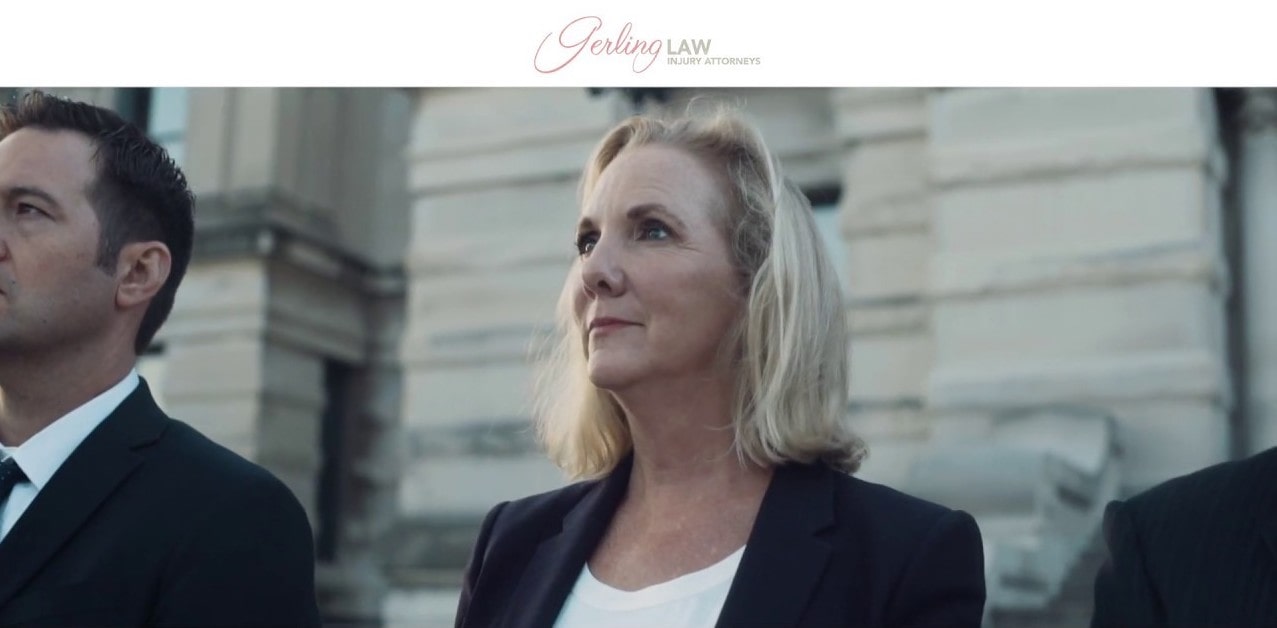
Case Updates
If you or a loved one took the weight-loss medication Belviq and developed an increased risk of certain types of cancer, you may be eligible to file a Belviq cancer lawsuit. Drug manufacturer Eisai, Inc., conducted a clinical trial over the course of five years to determine whether its weight loss medication increased the risk of cardiovascular disease. What the FDA discovered instead was an increase in various types of diagnosed cancers, such as lung, colorectal, and pancreatic cancer, in people who took Belviq. If you developed one of these cancers after taking this medication, please contact the Belviq lawsuit attorneys at Gerling Law Injury Attorneys today.
What Is Belviq?
Belviq, or its generic version, lorcaserin, helps obese patients and those suffering from weight-related health issues to reduce their hunger. Eisai, Inc., is a Tokyo-based drug company who makes Belviq. It entered U.S. markets with Belviq in 2012 after receiving its FDA approval. Now, the FDA issued a voluntary recall of the popular weight loss prescription from the market in 2020 after learning of the increased risk of cancer.
Belviq works by altering the brain’s chemical signals that are responsible for appetite. It is intended to help create a feeling of fullness, which could assist someone with weight loss and reduce their risk for other health issues. When combined with a good diet and plenty of exercise, patients could potentially lose even more weight. Some medical providers also prescribed Belviq to treat obesity linked to high cholesterol, high blood pressure, and diabetes. While it might help someone lose weight, Belviq didn’t treat the underlying health issues.
Belviq was available in two forms before being pulled from the market —Belviq and Belviq XR. Belviq was a 10 mg tablet that you took twice a day, while Belviq XR was an extended-release drug that you took only once a day. These drugs were approved for use in adult patients with a body mass index (BMI) of 30 or more or any adult with a BMI of 27 who also had other conditions, such as high blood pressure, Type 2 diabetes, or high cholesterol.
Prior to the voluntary Belviq recall, Belviq held the top position for similar kinds of drugs. The leading medication now is Novo Nordisk’s Saxenda.
Why Is Belviq Dangerous?
Since Belviq entered the U.S. markets in 2012, researchers studied how safe the medication was. The FDA requested that Eisai, Inc. conduct a study to understand whether patients were developing any increased risk of heart-related health issues while taking Belviq.
Eisai, Inc., conducted a double-blind, randomized, placebo-controlled clinical trial that analyzed 12,000 participants. Some participants received Belviq, while others were on a placebo. Rather than finding any links to cardiovascular conditions, the FDA noted a higher incidence of cancer diagnoses in participants who received Belviq when compared to those on the placebo drug.
The clinical trial showed about 7.7% of patients on Belviq received a cancer diagnosis versus 7.1% who had the placebo. A total of 462 participants on Belviq were diagnosed with 520 cancers, while 423 members of the placebo group had 470 cancers diagnosed. The clinical trial also showed that the longer someone was on Belviq, the risk of developing cancer increased.
This link to developing cancer is not something that came out of the blue either. Eisai, Inc., performed early studies on rats, which showed a possible link to cancer. Before receiving FDA approval in 2012, results showed there was an increased risk of cancer-related tumors in the rats tested.
The FDA was aware of the results but ultimately decided the risk wasn’t significant enough to pull Belviq from the market. However, the FDA reversed its opinion in 2020 after receiving the results of the clinical trials. It’s important to note that the initial FDA review in 2010 resulted in a 9-to-5 vote for denial. Some FDA reviewers didn’t feel Belviq was efficient enough to warrant the risks. When it came up for review again in 2012, the FDA required Eisai, Inc., to conduct the clinical safety trial if it approved the drug for U.S. markets.
What Types of Cancers Are Linked to Belviq?
The FDA noted there were several different types of cancers prevalent in the clinical trials, including:
- Colon cancer,
- Pancreatic cancer,
- Lung cancer,
- Breast cancer, and
- Brain cancer.
The three primary types of cancer noted in the study were colon, pancreatic, and lung. If you developed one of these three types of cancer after taking Belviq, you might be entitled to compensation.
The FDA noted the possible increased risk of developing cancer but has also said it cannot definitively conclude Belviq contributed to the cancer risks and that the cause is still unknown. Despite that, the possible risks outweigh the benefits of taking Belviq, and therefore, the FDA recommends anyone still taking the drug cease use immediately.
Eisai, Inc., has gone on record to say its data interpretation differs from the FDA but that it would comply with the Belviq recall to remove the medication from the U.S. markets.
What Is the Status of the Belviq Lawsuit?
Because the information on the potential links to cancer only came out in 2020, any litigation against Eisai, Inc., is very new. There have been no major developments such as large verdicts or settlements. If you believe you have a case involving Belviq, speak with one of our skilled Belviq lawsuit attorneys.
Belviq Lawsuit 2022 Update
In one of the first lawsuits to be filed, a federal judge rejected the defendants attempt to have the plaintiff’s claims dismissed. Thus, the plaintiff’s claims of negligent failure to warn will continue to move forward.
Gerling Law Injury Attorneys has decades of experience with dangerous drug and defective product cases. We can help you determine whether your situation qualifies to file a lawsuit against the drug manufacturer.
Belviq Side Effects
In addition to the increased risk of cancer, Belviq has several potential side effects. Some of the mild side effects include:
- Dry mouth,
- Dizziness,
- Nausea,
- Headache,
- Tiredness, and
- Constipation.
Some patients reported other more serious but rare complications such as enlarged breasts, suicidal thoughts, easy bruising/bleeding, other mental and mood changes, or low blood sugar.
Over $500 Million in Recoveries
Gayle Gerling Pettinga makes significant contributions of time, talent, and resources to individuals and organizations that have improved the quality of life for the people around her. - Mary Ellen F.
Who Is Eligible to File a Belviq Lawsuit?
To file a Belviq cancer lawsuit, you need to meet the following requirements:
- Developed colorectal, pancreatic, or lung cancer;
- Took Belviq for a total of at least six months;
- Received a diagnosis of cancer within seven years of taking Belviq; and
- Cancer must have originated in one of these three systems, not spread to them.
If you lost a loved one due to cancer that may be linked to Belviq use, please contact us. Surviving family members may be eligible to file a wrongful death lawsuit. You should contact Gerling Law within one-and-a-half years of losing your family member to qualify.
Before you meet with our Belviq lawsuit attorneys, please request all available information on your personal cancer history and Belviq usage to bring to your initial consultation. This information can help us determine your eligibility to move forward with a Belviq lawsuit.
How a Belviq Cancer Lawsuit Works
If you have never filed a personal injury claim before, you are likely unfamiliar with the litigation process. The first step is contacting our Belviq lawsuit attorneys at Gerling Law to schedule a consultation. You should contact us right away if possible because every state has a legal deadline to file a lawsuit. This deadline is known as the statute of limitations and provides only a limited window of time to take legal action. Failure to meet the statute of limitations means the court may throw out your case.
You also have a legal duty to mitigate your damages. What that means is you must seek medical treatment as ordered by your doctor. If you are diagnosed with cancer, but you wait six months to start treatment, you aren’t mitigating your damages. If your cancer spread during the time you didn’t get help, it will be hard to argue that the drug company is responsible for all your cancer and treatment. However, if you seek treatment timely and still develop additional types of cancer, that is arguable.
Once you have retained an attorney, we will handle all the complex and challenging legal tasks. We will start to gather evidence such as medical bills, lost time from work, and proof of your physical and emotional suffering. These pieces of evidence will help prove your injuries and damages during litigation.
Damages Available in a Belviq Lawsuit
In general, some of the most common types of damages you could receive in a dangerous drug lawsuit include:
- Medical expenses to date;
- Future medical expenses;
- Lost wages;
- Loss of earning capacity;
- Disability;
- Physical pain and suffering; and
- Emotional pain and suffering.
Reporting Belviq Side Effects
The FDA is also requesting that patients report their side effects to better track these safety issues. It wants both patients and health professionals to report any side effects or adverse reactions to its MedWatch Safety Information and Adverse Event Reporting Program. You can submit your information one of four ways:
- Fill out the MedWatch Online Voluntary Reporting Form;
- Contact the FDA by phone at 85-543-DRUG (3784), and press 4;
- Email the FDA at druginfo@fda.hhs.gov; or
- Call 800-332-1088 to request the reporting form, then submit it via fax to 800-FDA-0178.
Disposing of Unused Belviq Medication
Healthcare providers should not be prescribing Belviq any longer and should let any patients know about the increased risk of cancer. If you use Belviq, it’s essential to dispose of any unused medication properly. The FDA recommends taking any unused pills to a drug take-back location or properly disposing of them in your home. The recommended method of disposal at home is:
- Mix the unused pills with an uninviting substance such as used coffee grounds, dirt, or even cat litter. Note: Do NOT crush the pills when you do this.
- Place the mixture in a sealed container, such as a bottle or Ziploc bag.
- Throw the container in your regular trash to be picked up.
Before you dispose of your prescription bottles, be sure to remove all identifying information from the bottles. You can either recycle these pill containers at home or throw them away. The FDA also suggests that you speak with your healthcare provider about other alternatives for weight-loss drugs and management programs to control your weight.
Contact Our Belviq Lawsuit Attorneys
Hiring the right attorney in a product liability or dangerous drug case is crucial. Your attorney’s skill level and experience are directly linked with the potential compensation you could receive. The lawyers at Gerling Law have been representing injured victims for decades. We have extensive experience with dangerous drug cases as well as other types of defective products. We aren’t afraid to stand up to big pharmaceutical companies and other corporations releasing dangerous products that injure unsuspecting consumers. We also have the necessary financial resources to take your case to trial if the defendants refuse to settle.
Don’t settle for a law firm that doesn’t have the experience or financial resources to take on Eisai, Inc. Let our Belviq lawsuit attorneys help. Contact Gerling Law today to schedule an initial consultation. Remember,
